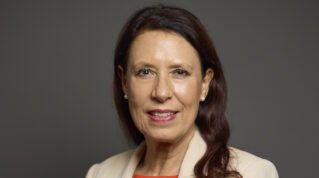Independent training providers will be expected to follow the government’s Gatsby Benchmarks for the first time from September.
Private providers that train 16 to 18 year olds will be “strongly encouraged” to offer learners “meaningful” workplace experiences, provide “encounters” with employers and create a board-approved “stable, structured” careers programme.
The Gatsby Foundation first developed eight benchmarks in 2014 to set standards for careers advice and guidance in education. The government initially adopted the benchmarks for secondary schools before expanding its framework to colleges in 2018.
An extension to ITPs was announced on Thursday after the Gatsby Charitable Foundation reported last year that “growing numbers” of independent providers were using the benchmarks.
While the benchmarks are statutory for schools, they are voluntary for colleges and ITPs.
John Yarham, interim CEO of The Careers & Enterprise Company, told FE Week: “ITPs with learners up to the age of 18 (or 25 if they have an education, health and care plan) are included to ensure that all young people have access to a high-quality careers offer, regardless of which type of institution they are learning in.”
Ben Rowland, chief executive of the Association of Employment and Learning Providers, said: “The decision to formally include independent training providers in the updated guidance is a very positive step. With strong employer links, our members are well placed to support careers education that is embedded in real-world employment settings.
“Many ITPs are already delivering the eight Gatsby Benchmarks in practice, so we welcome this as an opportunity to bring greater clarity and extend the sharing of best practice further.”
The Department for Education encouraged ITPs and colleges to self-report their progress against the benchmarks each term.
It also encouraged ITPs to hold the matrix standard, a Department for Education-owned national quality standard that helps providers to assess and measure their advice services. Colleges in receipt of adult skills funding are already mandated to hold the matrix standard.
Beefed-up benchmarks
The Careers & Enterprise Company confirmed slight changes to each of the eight benchmarks.
Benchmark 1: A stable careers programme
Colleges and ITPs should now have a board-approved “stable, structured” careers programme with a trained careers leader. The benchmark previously only called for an “identified and appropriately trained person”.
The careers programme should also detail how parents and carers will be engaged.
Benchmark 2: Learning from career and labour market information
This benchmark now asks providers to incorporate up-to-date labour market information during each study programme.
It was updated to specify that young SEND learners may require different or additional information.
Benchmark 3: Addressing the needs of each young person
FE providers are advised to integrate careers advice from secondary schools and keep records of learners’ participation.
“Records should begin to be kept from the first point of contact or from the point of transition,” the guidance says.
Benchmark 4: Linking curriculum learning to careers
Colleges and ITPs are recommended to provide every learner throughout their programme of study with “opportunities to experience how knowledge and skills developed in their subjects” help people get their foot in the door of a wide range of occupations.
Benchmark 5: Encounters with employers and employees
The guidance says colleges and ITPs should arrange at least two meaningful encounters with an employer, with at least one delivered through their curriculum area.
It also says the encounters should be with employers of “different sizes and specialisms”.
The updated benchmark includes learners’ “own part-time employment where it exists” but should not replace the need for other meaningful encounters.
Benchmark 6: Experiences of workplaces
The new guidance also states that college and ITP learners should have had “at least one further meaningful experience” in a workplace by age 18.
The DfE defined a meaningful experience to mean having a “clear purpose”, appropriate learning outcomes, and involve “extensive” two-way interactions with staff and learners.
Benchmark 7: Encounters with further and higher education
This benchmark has updated terminology to include ITPs to “better reflect the education and training landscape”, now explicitly referencing technical education.
It now specifies that children under the age of 16 should have meaningful encounters with providers including sixth forms, colleges, universities and ITPs.
“ITPs are now listed as a provider type that all young people should encounter because they are an important education and training option for many young people,” the Gatsby report said.
Benchmark 8: Personal guidance
School sixth forms, colleges and ITPs have also been encouraged to provide personal guidance meetings to learners by the age of 18, which entail either an internal or external meeting with a careers adviser.
















Your thoughts